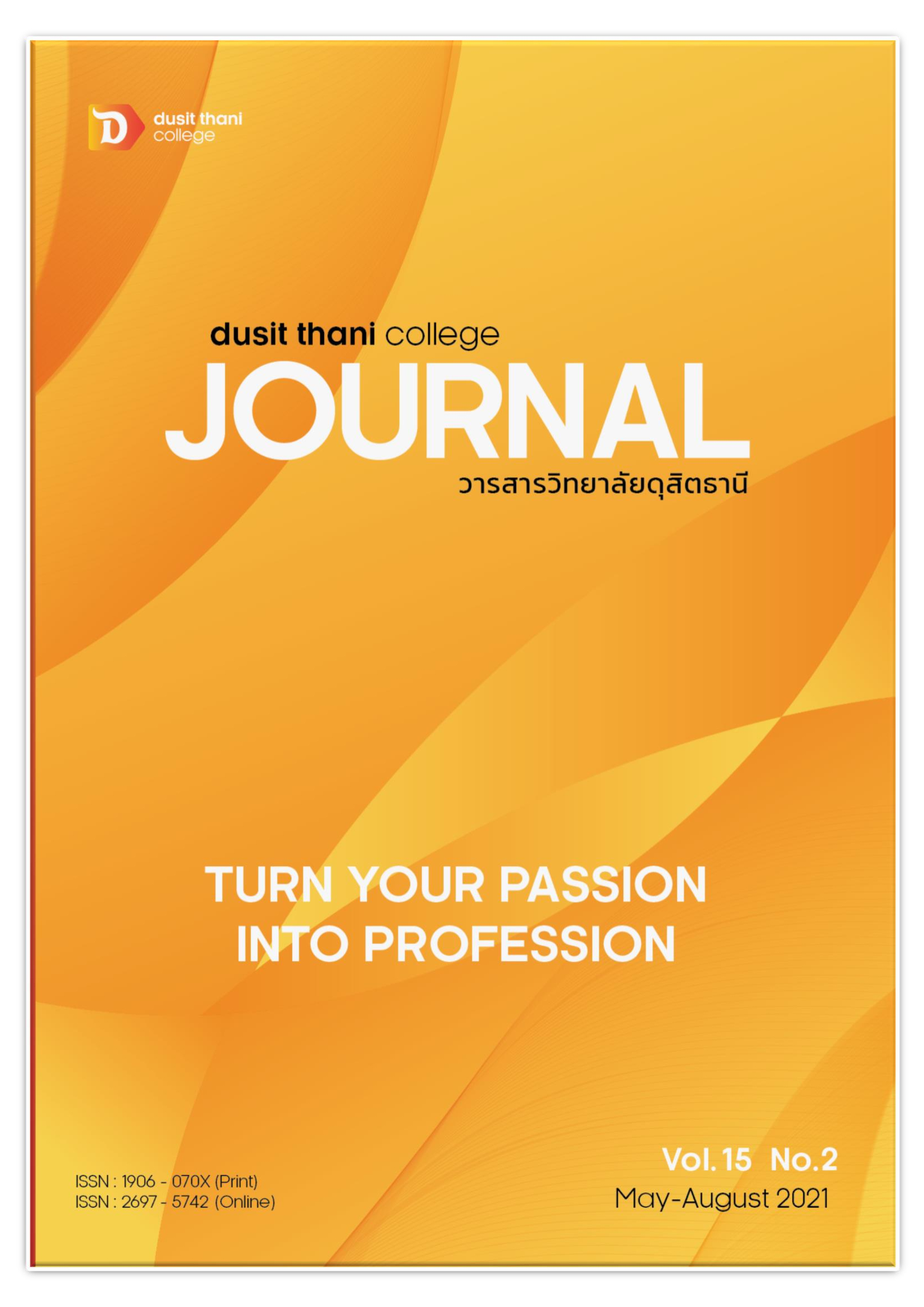MANAGEMENT GUIDELINES FOR CONTEMPORARY THAILAND TOURISM AND HOSPITALITY INDUSTRY WITH THE CHALLENGING GROWTH OF SHARING ECONOMY PRACTICES
Main Article Content
Abstract
The objective of this research is to present the management guidelines for Thai contemporary tourism and service industry in the challenging issue from the growth of sharing economy system. This study involves the use of mixed methods research by using the quantitative research in 2 sample groups, which involves 203 foreign tourists and 478 Thai tourists or the total of 681 tourists. By use of exploratory factor analysis: EFA, Kaiser-Meyer-Olkin Measure (KMO), Bartlett's Test of Sphericity and the result show as Structural Equation Model: SEM.
The management guideline for Thai tourism and service industry to create a balance, reduce conflicts, and be accurate according to the law and the rule of law for sustainability and the design of polity to be in accordance with the business operation in Thailand, accommodation, vehicle, and individual that conducts the tourism business under the sharing economy system must register with the government sector and pay for tax. The accommodation business in sharing economy system must register with the government sector and provide the service for not exceeding 180 days per year with no more than 30 rooms in possession. The tax payment must be more than normal hotels for 10 percent of the revenue. The transportation and guiding business in economy system must register with the government sector. There must be the specific driving license for providing a service in sharing economy system with the tax payment according to the revenue received.
Article Details
Article Screening Policy
- All research and academic articles to be published must be considered and screened by three peer reviews in the relevant field / article.
- All articles, texts, illustrations and tables published in the journal are the personal opinions of the authors. Editors don't always have to agree. And no responsibility whatsoever is the sole responsibility of the author.
- The articles to be published must never be published. Where did you first publish? And not in the consideration of other journals If the audit found that there has been a duplicate publication It is the sole responsibility of the author.
- Any article that the reader sees as being plagiarized or impersonated without reference. Or mislead the work of the author Please let the journal editor know it will be your greatest blessing.
References
Kask, J. and Linton, G. (2013), “Business mating: when start-ups get it right”, Journal of Small Business & Entrepreneurship, 26(5), 511-536. [Crossref], [Google Scholar] [Infotrieve]
Blank, S.; Dorf, B. The Startup Owner’s Manual: The Step-by-Step Guide for Building
a Great Company; BookBaby: Pennsauken, NJ, USA, 2012.
Monica Bernardi. (2018). Millennials, sharing economy and tourism:
the case of Seoul. Journal of Tourism Futures, 4(1), 2018, 43-56.
Stefan Brauckmann. (2017). City tourism and the sharing economy –
potential effects of online peer-to-peer marketplaces on urban property markets. Journal of Tourism Futures, 3(2), 2017.
Jeroen Oskam, Albert Boswijk. (2016). Airbnb: the future of networked hospitality businesses. Journal of Tourism Futures, 2(1), 2016.
Hamed Haddouche, Christine Salomone. (2018). Generation Z and the
tourist experience: tourist stories and use of social networks. Journal of Tourism Futures, 4(1), 2018.
Anita Zatori, Meghan Beardsley. (2017). On-Site and Memorable
Tourist Experiences: Trending Toward Value and Quality-of-Life Outcomes. Series: Advances in Hospitality and Leisure, v.13, 2017.
Abel, Y. (2008). African American father’s involvement in their children ’s school-
based lives. Doctoral dissertation, Johns Hopkins University UN Press.


